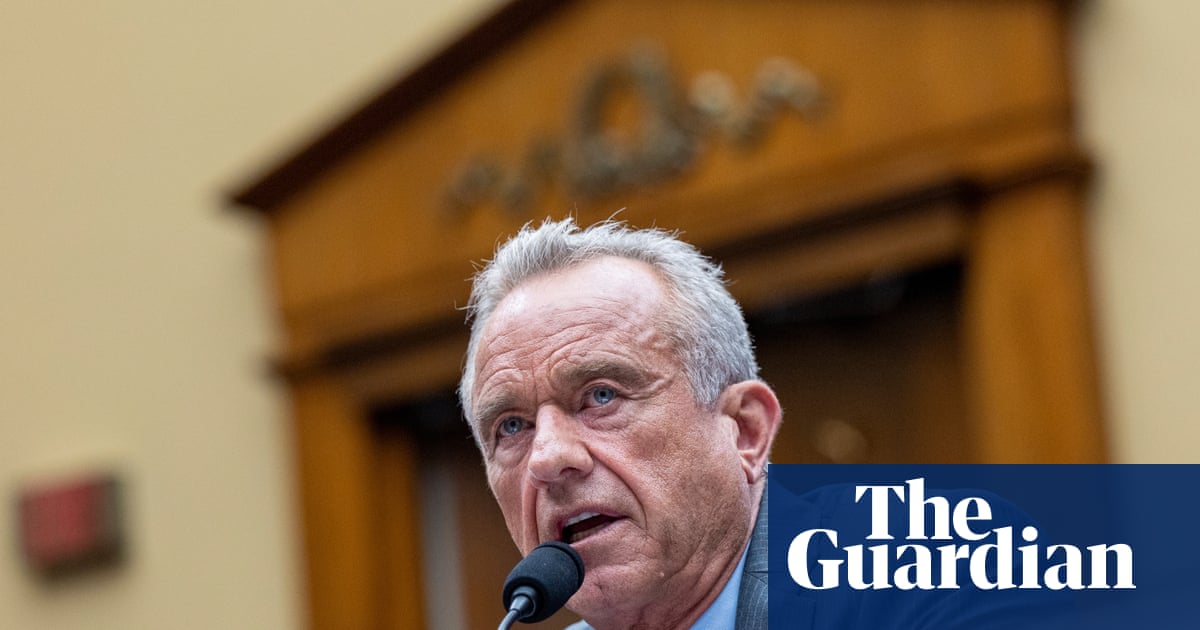Robert F. Kennedy Jr.’s Contentious Day on Capitol Hill
On a charged Tuesday, Robert F. Kennedy Jr., the U.S. health secretary, faced a rigorous interrogation from lawmakers on Capitol Hill. The hearing, held by the House health subcommittee, quickly transformed from a routine budget discussion into a battleground of accusations, particularly over his controversial stance on vaccines and recent decisions regarding public health.
Accusations Against Congressman Pallone
Kennedy’s most notable moment came when he accused Democratic Congressman Frank Pallone of being influenced by pharmaceutical contributions. During a heated exchange, Kennedy claimed, “You’ve accepted $2m from pharmaceutical companies,” insinuating that Pallone’s support for the vaccine advisory committee was inconsistent with his earlier concerns about vaccine safety.
The accusation stemmed from Pallone’s transition from criticizing mercury in FDA-approved products in the 1990s to supporting mainstream vaccine policies. This pivot prompted Kennedy to suggest that monetary influence was at play rather than a reliance on scientific understanding. However, when Pallone’s character was called into question, the subcommittee’s Republican chair demanded a retraction from Kennedy, showcasing the growing tension during the proceedings.
Questions of Honesty and Integrity
As the hearing progressed, it became clear that Kennedy’s relationship with Congress was deteriorating, even among those who initially supported his confirmation. Representative Kim Schrier, a pediatrician, confronted him about whether he misled Senator Bill Cassidy regarding his intentions to retain crucial advisory panels within the CDC. Two weeks prior to the hearing, Kennedy had dissolved the entire 17-member vaccine advisory committee, a move that seemed to contradict assurances given during his confirmation.
Schrier’s fiery retort was direct: “You have lied to the American people.” The charge resonated throughout the hearing, raising fundamental questions about Kennedy’s integrity and his capability to protect public health.
Ignorance of Key Healthcare Issues
Another pivotal moment emerged when Representative Alexandria Ocasio-Cortez interrogated Kennedy about his apparent unawareness of a significant investigation into UnitedHealthcare, the nation’s largest health insurer, by the Trump administration for potential criminal fraud in its Medicare Advantage plans. Ocasio-Cortez emphasized the staggering figure of $80 billion that these for-profit insurers allegedly defraud public programs annually, prompting Kennedy to feign confusion.
This interaction highlighted concerns from lawmakers who viewed Kennedy as unprepared to lead and navigate the complexities of American healthcare.
A Shift in Public Health Policy
Kennedy’s decisions and statements did not only instigate controversy but also triggered alarm over the future of America’s public health landscape. His budget cuts eliminated entire offices within the Department of Health and Human Services (HHS), rendering them nonfunctional. While Kennedy defended these reductions as targeting “duplicative procurement and administrative offices,” the implications of these cuts raised serious concerns about the breadth of public health services.
Additionally, the appointees chosen by Kennedy to replace the ousted vaccine advisers alarmed both Democrats and some Republicans, including Senator Cassidy. Many of these new members were known for promoting vaccine misinformation, sparking worries about the direction of vaccine policies under his leadership.
The Debate Over Vaccine Safety
Kennedy has long championed discredited theories linking vaccines to autism, raising fears that his administration could legitimize dangerous anti-vaccine narratives. Recently, he justified retracting COVID-19 vaccine recommendations for pregnant women by claiming “there was no science supporting that recommendation,” a statement contradicted by extensive research affirming the safety of vaccinations during pregnancy.
His declaration that pregnant women could still obtain the vaccine if they desired seemed insufficient to alleviate concerns regarding the potential impact of his policies.
Vision for the Future of Health
Despite the controversies surrounding him, Kennedy presented a bold vision for America’s health future, proposing that all citizens wear smartwatches or fitness trackers within the next four years. This ambitious plan, backed by what he described as “one of the biggest advertising campaigns in HHS history,” suggested that wearables could become an alternative to expensive medications, emphasizing preventive health management over pharmaceutical dependence.
Kennedy’s assertion that achieving health monitoring via an “$80 wearable” would be “a lot better for the American people” reflected a significant shift in how public health might be approached moving forward.
Implications for Public Trust
As the hearing unfolded, the alarm bells rang louder regarding Kennedy’s capability to lead America’s health agencies. The contentious exchanges, combined with his questionable relationship with lawmakers, indicated a widening rift between his vision for public health and the expectations of Congress. The ramifications of his actions could reshape not just public health policy, but also the public’s trust in the systems designed to protect their wellbeing.
Kennedy’s battle against what he perceives as a corrupt public health establishment underscores a broader conflict within American healthcare, one that could have lasting implications for the country’s health infrastructure and the public’s faith in it.


